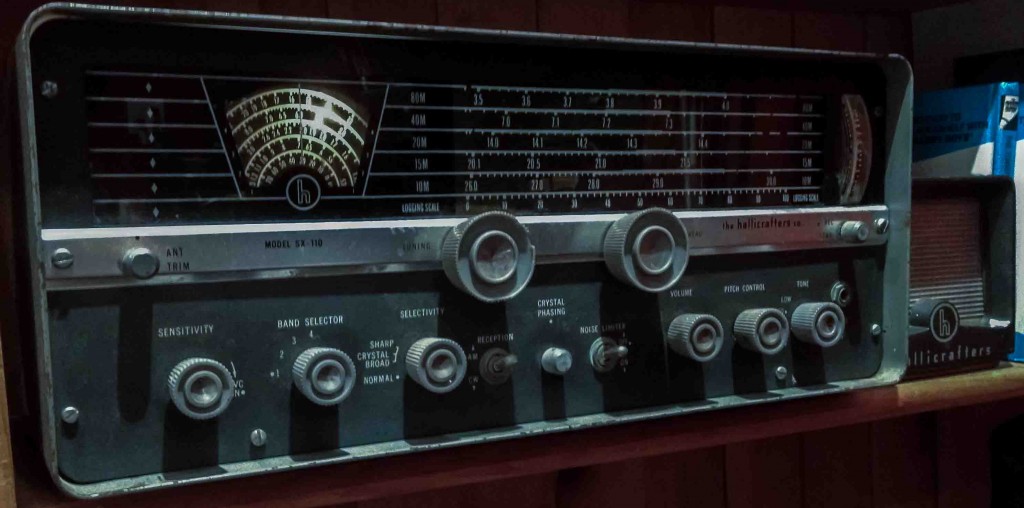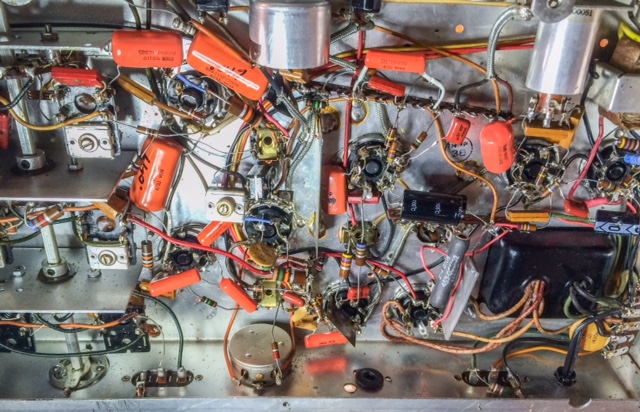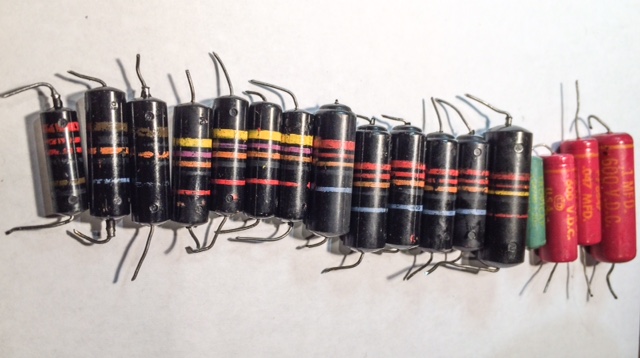Many thanks to SWLing Post reader, Jeffrey Fritz, writes:
During the summer of 2012 you were nice enough to run an article in your blog about my reviving a 1961 Hallicrafters SX-110 General Coverage receiver. The radio has continued to perform reasonably well during the last few years. However, recently I acquired several pieces of professional test equipment. That encouraged me to delve even deeper into the restoration of my old receiver from my novice ham radio days.
Over the past week, I completely recapped the SX-110 (except, of course, for the mica and ceramic caps as they still good, and the electrolytic caps as they were replaced in 2012.)
The SX-110 isn’t a complex receiver, but there are quite a few caps, so I worked methodically and carefully. I started working from the audio amp stage and continued working back through the IF stages and the BFO to the RF stage. I recapped each stage replacing the old caps with new Orange Drop caps. Each stage was tested before I moved on to the next stage. Here’s a photo of the recapped chassis:
Here are the capacitors that were removed from the receiver. Most are the old Bumble Bee caps–called that because of the color stripes that mark their value:
Virtually every Bumble Bee cap tested leaky and out of tolerance.
Next, I tested every tube replacing the weak or bad ones with NOS (New Old Stock) tubes. Every pot and switch was cleaned with DeOxit and moving parts were lubricated where appropriate. Finally, I did a complete re-alignment following the instructions in the Service Manual.
As with all vintage tube gear, restorations require patience, care and a decent knowledge of electronics. It’s easy to make a fair radio–even a good radio–into a disaster if you are not careful. Also there is enough voltage and current inside of the chassis of a tube radio to toss you across the room. So care is always the order of the day as is a VARIAC to bring the radio up to AC line voltage slowly.
The receiver now sounds as good as ever–perhaps even better than ever. It has marvelous AM audio and can pick up ham and broadcast stations on all bands with nothing more than a wire in my basement. It even does a decent job on SSB–something that I don’t recall it ever bring adept at in the past.
That say that you can’t keep a good man down. Similarly an old radio, with some new parts and some TLC, can run virtually forever.
I agree with you: you can’t keep a good radio down! Repair work is certainly the commitment we make when we fall in love with these old rigs. It’s a good thing that almost all of the parts are still available and relatively affordable.
Thanks again, Jeffrey!



